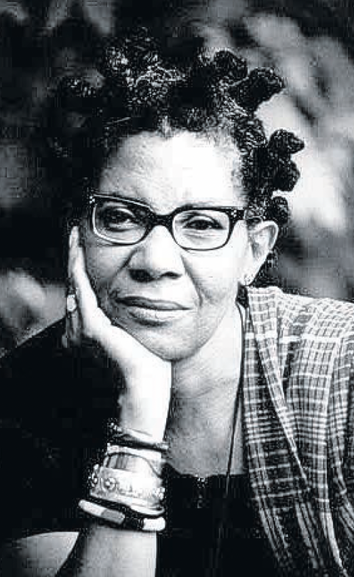 Tobago-born poet, playwright, essayist, and novelist M NourbeSe Philip was among eight writers awarded US$175,000 each by the Windham-Campbell Prizes to support their work and allow them to focus on their creative practice independent of financial concerns. A media release said the Windham-Campbell Prizes are a major global prize that recognizes eight writers each year for literary achievement across four categories – fiction, nonfiction, poetry, and drama. With annual prize money exceeding US$1.4 million – and total prize money awarded over the past decade at over US$18 million – they are one of the most significant prizes in the world. In poetry, Philip was selected for her diverse and rich body of work – including "Zong! As Told to the Author by Setaey Adamu Boateng" – which is deeply engaged with the complexities of art, colonialism, identity, race, and forgotten and suppressed histories, and that constantly pushes boundaries on the page and in performance, the release said. The selection committee gave her this citation: “Inventing derelict tongues of refusal, M. NourbeSe Philip breaks open and reimagines the horror of official speech and how it acts, creating a genre-obliterating poetry.” Previous writers from TT who have been awarded a Windham-Campbell Prize include Dionne Brand (fiction, 2021) and André Alexis (fiction, 2017). Michael Kelleher, director of the prizes, said: “Each year, I feel incredibly honored to call the eight recipients: to be the messenger delivering the entirely unexpected and life-changing news that they have been awarded US$175,000. It is clear – now, more than ever – how challenging working in the creative industries, around the world, can be. A Windham Campbell Prize is intended to offer financial security, and through this freedom, the time and space to write, to think, to create – all without pressure or expectation.” The prizes were the brainchild of lifelong partners Donald Windham and Sandy M. Campbell. The couple were deeply involved in literary circles, and for years they had discussed the idea of creating an award to highlight literary achievement and provide writers with the opportunity to focus on their work independent of financial concerns. When Campbell died unexpectedly in 1988, Windham took on the responsibility for making this shared dream a reality. The first prizes were announced in 2013. The prizes are administered by Yale University’s Beinecke Rare Book & Manuscript Library, and nominees are considered by judges who remain anonymous before and after the prize announcement. Recipients write in English and may live in any part of the world. 2024 recipients:
0 Comments
Pan American Track Cycling Championships 2024 men's keirin gold medallist Nicholas Paul, centre, is flanked by silver medallist and reigning keirin world champion Kevin Quintero, left, and bronze medallist Kwesi Browne. Photo courtesy TT Cycling Federation. ACE Trinidad and Tobago cyclist Nicholas Paul earned his country's first gold medal at the 2024 Pan American Track Cycling Championships at the Velo Sports Centre in Los Angeles, California on April 4, competing in the men's keirin event.
On April 3, Trinidad and Tobago got their first medal of the games when endurance rider Akil Campbell grabbed bronze medal in the men's scratch final. Campbell's compatriots added to Trinidad and Tobago's medal tally on the following day of competition as Paul topped the six-man keirin field, with fellow TT cyclist Kwesi Browne notching third spot to secure his team's third medal at the games. Paul took a tactical approach as he started from the back of the pack, before using his world-record sprint speed to power past the field to claim gold. Colombian and reigning world keirin champ Kevin Quintero took the silver medal, while his countryman David Ortega was just pipped to a podium finish by Browne. In the women's elimination race final on April 4, TT's Alexi Ramirez finished eighth, with USA's Jennifer Valente taking the gold medal. Colombia's Juliana Londono and Mexico's Yareli Acevedo placed second and third respectively. In the women's sprint event, 2023 Commonwealth Youth Games medallist Makaira Wallace advanced to the 1/8 finals and ended the competition in 13th place, while Phoebe Sandy narrowly missed out on a spot in the 1/8 finals and finished 17th overall. In the early session on April 5, Tariq Woods will take to the track in men's pursuit qualifying, Ramirez will contest the women's scratch omnium and the trio of Browne, Paul and Quincy will face the starter in men's sprint qualifying. (Source: Newsday, April 5, 2024) - Author : Angelo Bissessarsingh There are good men and there are great men. Unfortunately, these are often the first to be cast aside, they whose memories and the works with which they benefitted humanity. In his long and prosperous lifetime, Harry Bourne Darling of Lothians Estate near Princes Town did more for the colony than many since. Born in Dublin Ireland around 1813, little is known of Darling’s origins save that by 1840 he was working at Les Efforts Estate, near San Fernando. Darling saved and was able to acquire the extensive Lothians estate near the old Spanish Mission of Savanna Grande, an area known for its pastoral beauty and rolling hills.Following the example of Eccles, Darling opened at his own expense, a school for the Indian children of his estate, breaking with the norm of other estate owners in putting the children to work in the weeding gangs of the estate. This was a full five years or so before the arrival of Rev. John Morton in 1868 and the commencement of the Presbyterian Canadian Mission to the Indians (CMI). Darling, through the Anglican church , sent to India a catechist who could teach and relate to the Indians. The school was described thus in 1864: “Whilst this good work was going on in the North of the Island, in the South Mr. Darling was working in the same direction by the maintenance on his Estate of an Indian School for Coolie Children, to which he has recently added a Catechist from India for the instruction of the adults. Most affecting is it to hear the little Hindoo children, whose ordinary language is still that of their native land, rehearse distinctly their little hymns in English, with verses from the Holy Scripture, or answer simple questions in Bible History, or on Christian truth, or repeat in their own language the Christian Creed and the prayer of our Lord. The Lothians School has 24 schoolars of whom 21 are Hindoo.” Such were the good works of Darling, that he was known as the ‘Squire’ of Savanna Grande, being a man famous for his deep sense of charity, humanity and goodwill. This was the exception rather than the norm among the Naparima sugar planters and really made him a legend in his own time. His home and its grounds were an example of tropic elegance and entertained many a distinguished guest. In 1869, the English writer, Charles Kingsley and his friend, Governor Sir Arthur Gordon visited Savana Grande via the Cipero Tramroad and overnighted with Darling. Kingsley was immediately taken with his gracious host and his magnificent abode and wrote flatteringly of him. In a time when harsh managers, owners and overseers dominated, Darling was a gentleman and father to all. Usually when devastating fires swept the pre-harvest canefields of the Naparimas, the estates which suffered the most were those with brutal management …..labourers would make half-hearted attempts to save the crop or none at all, caring nought if the estate went bankrupt, one master being as bad as another . Not a few of these fires were maliciously set to ruin hard-hearted managers. Darling’s kindness was well repaid when in 1868 forest fires raged on Lothians Estate all hands were on deck in a valiant but futile attempt at saving what the master had taken so long to build. Kingsley recounts the story thus: “And only the summer before all had been well-nigh swept away again. During the great drought the fire had raged about the woods. Estate after estate around had been reduced to ashes. And one day our host's turn came. The fire burst out of the woods at three different points. All worked with a will to stop it by cutting traces. But the wind was wild ; burning masses from the tree-tops were hurled far among the canes, and all was lost. The canes burnt like shavings, exploding with a perpetual crackle at each joint. In a few hours the whole estate, works, Coolie barracks, Negro huts, was black ash ; and the house only, by extreme exertion, saved. But the ground had scarcely cooled when replanting and rebuilding commenced; and now the canes were from ten to twelve feet high, the works nearly ready for the coming croptime, and no sign of the fire was left, save a few leaflesstrees, which we found, on riding up to them, to be charred at the base. And yet men say that the Englishman loses his energy in a tropic climate.” Rebuild they did, and when Kingsley and Governor Gordon sojourned with Darling, they had another touching example of the Squire’s paternal affection which is described as follows: “We had a charming Sunday there, amid charming society, down even to the dogs and cats ; and not the least charming object among many was little Franky, the Coolie butler's child, who ran in and out with the dogs, gay in his little cotton shirt, and melon-shaped cap, and silver bracelets, and climbed on the Squire's knee, and nestled in his bosom, and played with his seals ; and looked up trustingly into our faces with great soft eyes, like a little brown guazu-pita fawn out of the forest. A happy child, and in a happy place” The following day, Kinglsey and Governor Gordon rode into the village and met with the masses. Darling was also a benefactor of the Canadian Mission to the Indians , giving to Rev. John Morton, both lands and money for the establishment of a manse, chapel and school at Savana Grande, which is now known as St. Andrew’s Presbyterian Church. In 1880, Darling hosted royalty, and that of the finest, when the two grandsons of Queen Victoria , Princes Albert and George (later King George V) visited Trinidad as midshipmen aboard the HMS Bacchante. The Princes travelled to Savanna Grande via the Cipero Tramroad, where they were waylaid by the rector of St. Stephen’s Anglican Church, the Rev. J.G Knight, who begged Their Majesties to indulge him and an adoring crowd by planting two small poui trees near the chapel- still to be seen today- , which the Princes were happy to do. The name of the village was changed to Princes Town. They then proceeded to the mud volcanoes of the Devil’s Woodyard on Hindustan Estate, stopping on the return journey to be entertained by ‘Squire’ Darling. Even though a very old man, Harry Darling’s charity and hospitality never dimmed and in 1892, he hosted a wife of a Canadian Presbyterian missionary who wrote: “As kind friends had invited us to visit their Cacao estate near the Montserrat Hills, we returned to Princestown by the Cipero tramway, which took us through eight miles of sugar estates. Rev. Mr. Macrae was on hand to meet us. Thanks to the kind hearted Mr. H. B. Darling, who made a gift to our Mission, of a large part of his beautifully situated property for the "Manse", and the adjoining buildings and grounds. Though an Episcopalian he has ever shown the deepest interest in our Missionaries. We feel very grateful to Mr. Darling and the Doctor for their kindness to us, and we will not forget the many enjoyable drives, in the large comfortable ' Victoria", and the exquisitely arranged flowers he sent in to us during our stay” H.B Darling, full of years and good works, died in 1897 aged 84, being given a long existence which he used to great purpose. A huge crowd gathered at Lothians House where his remains were sorrowfully conveyed to the St. Stephen’s Anglican church , being laid to rest under a simple marble marker. Lothians Estate passed into the holdings of the Colonial Company , the owners of Usine Ste. Madeline and the largest sugar concern in the British Empire. The home which was sanctuary and salon to prince and pauper was demolished in the 1930s. Darling’s gravestone, in the unkempt St. Stephen’s churchyard, fell into dereliction and was lost for decades , before being restored by Clark and Battoo’s Funeral Home in the 1980s in a rare example of public preservation, worthy of the memory of a man who did so much and is now forgotten. The gravestone reads: “IN LOVING MEMORY OF HARRY BOURNE DARLING, FORMERLY OF THE LOTHIANS ESTATE . HE WAS BORN IN DUBLIN AND DIED AT PRINCES TOWN ON 9TH DEC. 1897 AT AN ADVANCED AGE. By grace ye are saved through faith and that not of yourselves , it is the gift of God . Eph. II .8” (Source: Angelo Bissessarsingh Virtual Museum of T&T, Feb 1, 2024) Congratulations to Ms. Doolarie Ramdath, cocoa farmer of Rio Claro! She is one of three local cocoa farmers who have achieved international recognition for their beans this year.
At the 2023 Cacao of Excellence Awards, Trinidad and Tobago proudly claimed 3 Silver Awards in the category of Central America and the Caribbean. Ms. Doolarie Ramdath was one of these recipients. The ceremony took place at the historic Beurs Van Berlage in the heart of the Amsterdam at the Chocoa Trade Fair, during the Amsterdam Cocoa and Chocolate week, on February 8th, 2024. Ms. Mala Partap of the Cocoa Development Company of Trinidad and Tobago Limited accepted the award on her behalf. Cacao of Excellence recognizes quality, flavour and diversity of cocoa beans from origins around the world, to improve farmers’ livelihoods and drive sustainability of the cocoa supply chain, since 2009. Here is the Cacao of Excellence’s flavour profile description for the chocolate made by Doolarie’s beans- “This smooth chocolate opens with moderate acidity over a solid cacao base, hints of fresh grapefruit, tropical, and yellow fruits. It transitions to deeper raisins and dried apricots, mild wood, and vegetal notes. Subtle hints of tobacco emerge, and astringency builds up in the finish supporting the lingering cacao aftertaste.” We wish her more cocoa successes in the future! (Source: Cocoa Development Company TT, March 13, 2024) Dr. Lesley-Ann Noel, pictured above, is well-positioned to lead OCAD U's Faculty of Design. Photo credit: Niamh Brennan. DR. LESLEY-ANN NOEL JOINS OCAD U AS NEW DEAN, FACULTY OF DESIGN
OCAD University welcomes Dr. Lesley-Ann Noel as its new Dean of the Faculty of Design on July 1, 2024. Her five-year appointment was approved by the Board of Governors at its March 4 meeting. Dr. Noel is well-positioned to lead the Faculty of Design in enhancing studio-based learning, promoting entrepreneurship, securing more industry collaborations and advancing decolonization and equity to enrich the student learning experience. Dr. Noel, who has an MBA and a Ph.D. in Design, has served as an industrial design consultant for more than 10 years for export development agencies in Kenya, Guyana, the Caribbean and the International Trade Centre of the World Bank. She also developed products for artisans to market at international trade shows. Her experience in the global south will support the University’s recent partnership-building efforts in the Caribbean and South America. Her recent projects in patient-centered outcomes research will support scholars working in health design research across the University’s undergraduate and graduate programs. “Dr. Noel is the kind of interdisciplinary design practitioner needed to support our students and faculty now,” says Dr. Caroline Langill, Vice-President, Academic and Provost, who chaired the Decanal Search Committee for the new dean. “We believe she will be inspiring and forward-thinking in her new role as the Dean of the Faculty of Design.” Reporting to Dr. Caroline Langill, Dr. Noel will be responsible for the educational and research leadership, development and supervision of the Faculty. “OCAD U is a global leader in educating designers who are equipped with the knowledge and mind-set to offer solutions in addressing some of the issues we face today, including climate change, social inequality as well as emerging issues such as the ethics of new technologies,” says Dr. Noel. “I am excited to join the Faculty of Design and continue the work to transform design education, research and practice.” Dr. Langill thanked the members of the search committee for their commitment and due diligence: Stephen Foster, Dean of the Faculty of Art; Faculty members Roderick Grant, Dr. Nithikul Nimkulrat, Dr. Jutta Treviranus and Dr. Emma Westecott; student representatives Sanvitti Dalmia and Yara Selman; and Connie Arezes-Reis, the representative from People & Culture. She also extended a sincere thank you to Dr. Kathy Moscou for taking on the role as interim dean since July 1, 2023. MORE ABOUT DR. LESLEY-ANN NOEL Dr. Lesley-Ann Noel is a designer, researcher and educator. Her research interests focus on those traditionally excluded from research, design-based learning and design thinking. She practices primarily in social innovation, entrepreneurship, education and public health. In her research, she highlights the work of designers outside Europe and North America. She designed The Designer’s Critical Alphabet, a deck of cards to help introduce designers and design students to inclusive design concepts. She also designed Empathy Games for Children, a deck of cards with activities to help children empathize with each other. She is the co-founder and co-chair of the Pluriversal Design Special Interest Group of the Design Research Society. She is the author of Design Social Change and a co-editor of The Black Experience in Design: Identity, Expression and Reflection. Dr. Noel has a BA in Industrial Design from the Universidade Federal do Paraná in Curitiba, Brazil and an MBA from the University of the West Indies in Trinidad and Tobago. She earned her Ph.D. in Design from North Carolina State University, where she was most recently a faculty member focusing on Design Studies in the Department of Media Arts, Design and Technology. She has been awarded honorary doctorates for service to the design field by the University of the Arts London (2023) and the Pacific Northwest College of Art (2021). Before joining North Carolina State University, she was the Associate Director of Design Thinking for Social Impact at Tulane University. She was also a lecturer at Stanford University and the University of the West Indies. (Source: OCAD University , April 3, 2024) The shoemaker - Trinidad and Tobago Newsday written by Valdeen Shears. March 2, 2024
Akanni Kamau was only 15 when he developed a love for craft. He made his first pair of slippers out of cardboard and hunted for scraps outside a shoe factory in St James when he decided to upgrade his product. He was so determined to hone his skills that he did a stint as a shoemaker just to learn the intricacies of how to "build" footwear. Soon the teen would go from cardboard slippers to his first pair of leather sandals, made from the scraps he had gathered. Kamau, now 63, told Business Day that his curious, teenage mind was at that time fixated on African culture and art. The self-taught craftsman said he read avidly on the topics and scored any publication he could get his hands on that offered teachings on craft. With no internet in those days to offer DIY tutorials, he persevered and did all his first creations by trial and error. "It started with just a thought that I could make sandals, beautifully crafted, artistic sandals and slippers. That I could one day see my creation on the feet of my countrymen and women. I lived at Nizam Street, St James at that time and the street behind there, Nepaul Street, had a shoe factory. I would go many days after school and gather scraps, just so I could use them to make more sandals and slippers. I experimented for two years, until I made one that I wore to market my work. It drew compliments and soon enough I was being asked to provide the same and similar designs for others," he recalled. This was all the encouragement he needed to recognise that he had found himself a viable business. The income was slow but sure, he said, so he worked as an air condition technician during the day and would excitedly get home to begin or complete a job for his quickly growing clientèle. Leather craftsman Akanni Kamau said while his creations are based on his own ideas, he is influenced by the wants and needs of his customers. Six years later, after building a customer base, Kamau said he knew he had to go all in and opened his first shop at Patna Street. He stayed there for over 15 years. "You have to truly love creating, satisfying your customers, for you to want to stay in this industry. I knew from the onset that any day job I did would soon take a back burner for my craft. It was no hard decision to leave my job then, my fixed income, my security blanket and branch out on my own doing my craft. I knew it would one day call for my full commitment and that day had reached." Kamau said while the current economy may somewhat negatively impact on the industry's sustainability, the market for craft is limitless and offers diverse opportunities. He firmly believes customers' needs and preference for durability keep the livelihoods of craftsmen and women going. "A satisfied customer is not one who has to return to buy every other month, but one who is loyal because the product bought is durable and lives up to his standards. People who love leather footwear see the sense in buying a sandal or slipper that will last longer than a month or two like most store bought shoes made out of plastic and compressed cardboard," reasoned the craftsman. Kamau is a father of two and a proud grandfather of seven. While none of his children followed in his footsteps, Kamau has passed on his legacy through others by training any youth who showed an interest. He recalled a group of young trainees who would "race each other to finish a project first." He would laugh at their antics, he said, and then sternly correct errors made in their haste to out do the other. Sadly, Kamau said, none of his trainees stuck it out. He said he suspects its because they could not see a clear way to secure a market and became discouraged. "Securing a market is often a deterrent for most creatives. They second guess their gifts, but if the ancestors give you, they will provide the means and opportunities for you to sustain yourself and your livelihood," he stressed. In the late 1980s, Kamau relocated to Clarence Street for five years and then again to De Norbriga Street, Morvant, where he is currently based. The move to Morvant meant he had to secure a new customer base. Some loyal customers followed him to Morvant, while some didn't. This though, did not faze the resilient craftsman, as he soon saw the support of his new community, several of whom wanted customised footwear. From time to time he takes a chance and markets his goods at lower Frederick Street, Port of Spain. Kamau's creations, while based on his own ideas, are very much influenced by what his customers want. So much so, that one customer took a photo of a pair of leather sandals in a popular shoe store in the city and sent it to him via social media. It was with a huge smile that she paid for her customised sandals two weeks later, he said. The artisan said he gets extreme satisfaction matching his creations to the personality of its wearer. Some of his work boasts brightly-coloured splashes, which he said women often gravitate towards. Kamau said he is sure that the versatility of any leather slippers or sandals will more than likely match any outfit in the average person's wardrobe. "My female customers can no doubt find a handbag, an earring, a chain, some fancy top they had been saving for a special occasion, to wear with one of the more decorative slippers or sandals. The lifted ones, with raised heels or wedge sandals are often a big hit for the ladies." It has not been all good times for his near 50-year journey, though. There have been struggles and he wishes that craftsmen and women would voice their need for a space of their own, particularly within the capital city. Some of the sandals made by leather craftsman Akanni Kamau. PHOTO BY ANGELO M MARCELLE Trinidadian-British actress Viscella Richards was best known for her role as a supporting actor in Black Snake (1973) and part in Zeta One (1969).
She moved from Trinidad to the UK with her family in the 1950s when she was six years-old. The star, who used the stage name Vikki Richards, began her career onstage. She went on to appear in films such as The Love Factor (1969) and the Onedin Line (1971), and in TV dramas including The Gentle Touch, Howards’ Way, and Return Of The Saint. In 1974, she was in the first ever photo taken by legendary Sun photographer Arthur Edwards when she posed with Wolves star striker John Richards (no relation). At the time Richards was starring in the farce No Sex Please, We’re British. Edwards went on to become Britain’s most famous royal photographer. In the ‘80s Richards moved back to Trinidad where she presented her own television series, Building Your Dream Home, for five years on TTT. On March 6, 2024, she was found dead at her home in North Valsayn after her property was ransacked by robbers. She was 79. Source: Dominic Kalipersad, March 9, 2024 THE STORY OF FELICITA VIDALE , A WOMAN WHO TAMED PART OF THE JUNGLE IN PALO SECO TO CREATE HER OWN GARDEN OF EDEN. Author : Rudolph Bissessarsingh Too often when we drive through the Southland of Trinidad, we still encounter at the sides of rural roads, vast tracts of virgin forests. Hugh patches of bamboo, terite, huge, giant flowering trees and tangled undergrowth of shrubs and vines. We fail to pause for a moment to ponder on the herculean efforts of the early settlers, their tremendous energy and resourcefulness that they expended in the taming of these tropical jungles.
This is the story of one of the unsung heroines of Palo Seco whose name was Felicita Vidale. Felicita made her first journey across the seas by canoe from Tucupita, Venezuela to Trinidad when she was only twelve years old. By that time the spark of adventure had already ignited her restless spirit and the quest for becoming an accomplished business entrepreneur. Felicita was of mixed ethnicity, part Amerindian, part African, part Spanish and other mixed heritage. She was a formidable woman to behold. Strong, tall, domineering, witty and with a keen sense of observation she would brave the perilous ocean many times back and forth from Tucupita to Trinidad, lured on by the prospectus of profitable trade. She was the proverbial tinker, selling each and everything from donkeys, shotguns, cows and even whiskey. Her covert trade involved coming ashore at Palo Seco with her goods and traversing forested trails through the Vidale Cocoa estate to escape the scrutiny of the police. From this base she would then quietly travel by donkey to San Fernando to purchase with the money she had traded her good for white cotton shirts and khaki pants to sell back on the mainland of Venezuela. The estate owner Clement Vidale often admired the beauty of Felicita. His enchantment soon led to love and Felicita and Clement got married at the Erin Roman Catholic Church. Theirs was a marriage that lasted well over fifty years and together they had five children. Her nuptial home was a humble tapia hut with a clay floor and a thatched roof. In the corner of their dwelling abode was a hole in the floor where she made coals to sell to the villagers. Soon the estate became known as Ma Clem Estate in Palo Seco. Cocoa, coffee, fonka bean trees, bananas, yam, cassava, citrus trees flourished in the rich virgin soil as slowly the jungle began to recede replaced by her husbandry. The village folks claimed that her spirit walked unseen through the Estate and this deterred unwanted predators from stealing the produce of the land. The Cocoa Estate became a hub of activity and an economic salve for many of the villagers. Felicita soon earned the respect and love of the villagers in the Palo Seco area. With knowledge gained from her childhood days she soon became the village mid wife, delivering hundreds of babies. In recounting her story , her grand son-in law revealed that on a visit on one occasion to visit his wife ( Felicita’s grand –daughter) who was expecting her first son , Felicita overheard a conversation that the patient next door would have to undergo a caesarean section because her baby was breached. He said Felicita without asking permission from anyone quietly when to the woman’s bedside, pulled the drapes around the bed and began rubbing the woman’s stomach so that the unborn child would turn in the direction so that the woman could have a normal birth. Afterwards she told the nurse at the station that the baby had turned so the woman could now have a normal delivery. Her knowledge of herbal medicines acquired from the mainland soon spread through the village and many came seeking relief of their medical ailments. Her religious dogma was formed in the cauldron of the Waraho Amerindian Tribe. At the heart of her religious belief system was a consciousness that Mother Earth was an eternally fruitful source of everything. The source of all life and nature too, the rivers, the birds the animals. She never made any decisions in life without being guided by her inner spirit. First thing each morning she recited this mantra “PAPA GOD YOU OPEN MEH EYES THIS MORNING “. There are many more stories waiting to be told about this woman everyone called “Ma Clem”. Felicita lived a long , healthy life and was one hundred and twelve (112) years old when she died . The Cocoa Estate of 29 acres is now lovingly preserved as a heritage site in her honour by her Grand-daughter Elizabeth Mohammed and her husband Imtiaz Ali. They are now the custodians left to carry out the legacy of Ma Clem, who had a vision of creating her own bit of paradise in the midst of an untamed tropical jungle . A woman who driven by sheer determination and hard work lived to see her dream come true her own Garden of Eden planted with exotic fruit trees, flowering plants and a productive cocoa estate. More importantly Ma Clem was able to carve out indelible memories in the minds of all who knew her. WE SALUTE YOU FELICITA VIDALE. A LIFE WELL LIVED. (Source: Vitrual Museum of Trinidad and Tobago, March 2, 2024) |
T&T news blogThe intent of this blog is to bring some news from home and other fun items. If you enjoy what you read, please leave us a comment.. Archives
December 2024
Categories
All
|

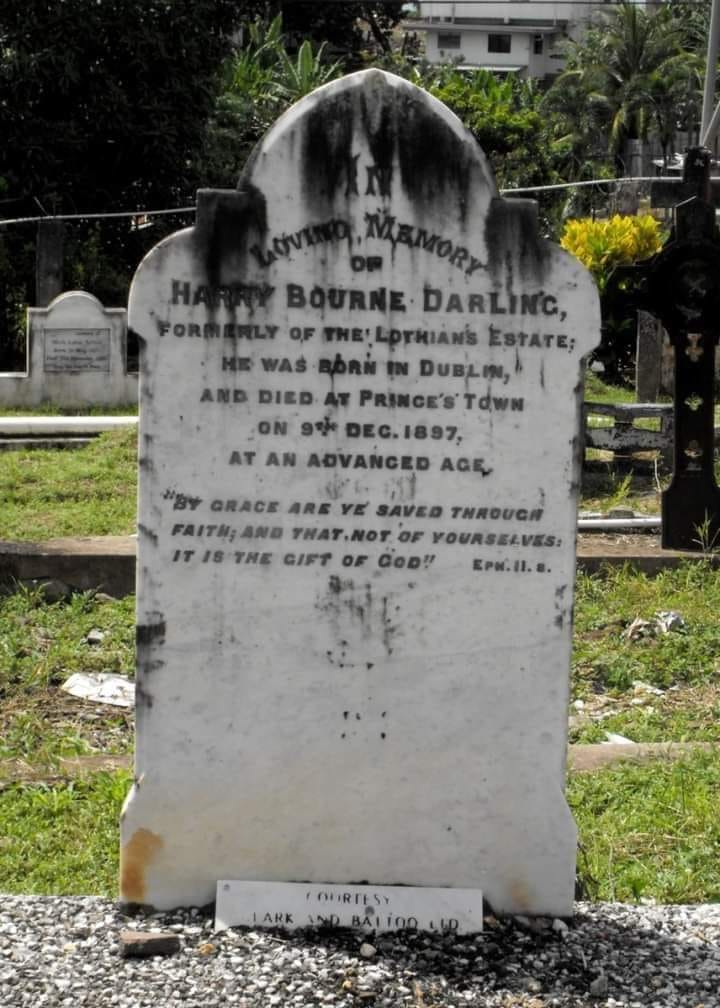

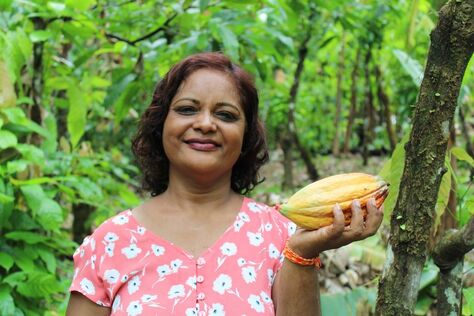
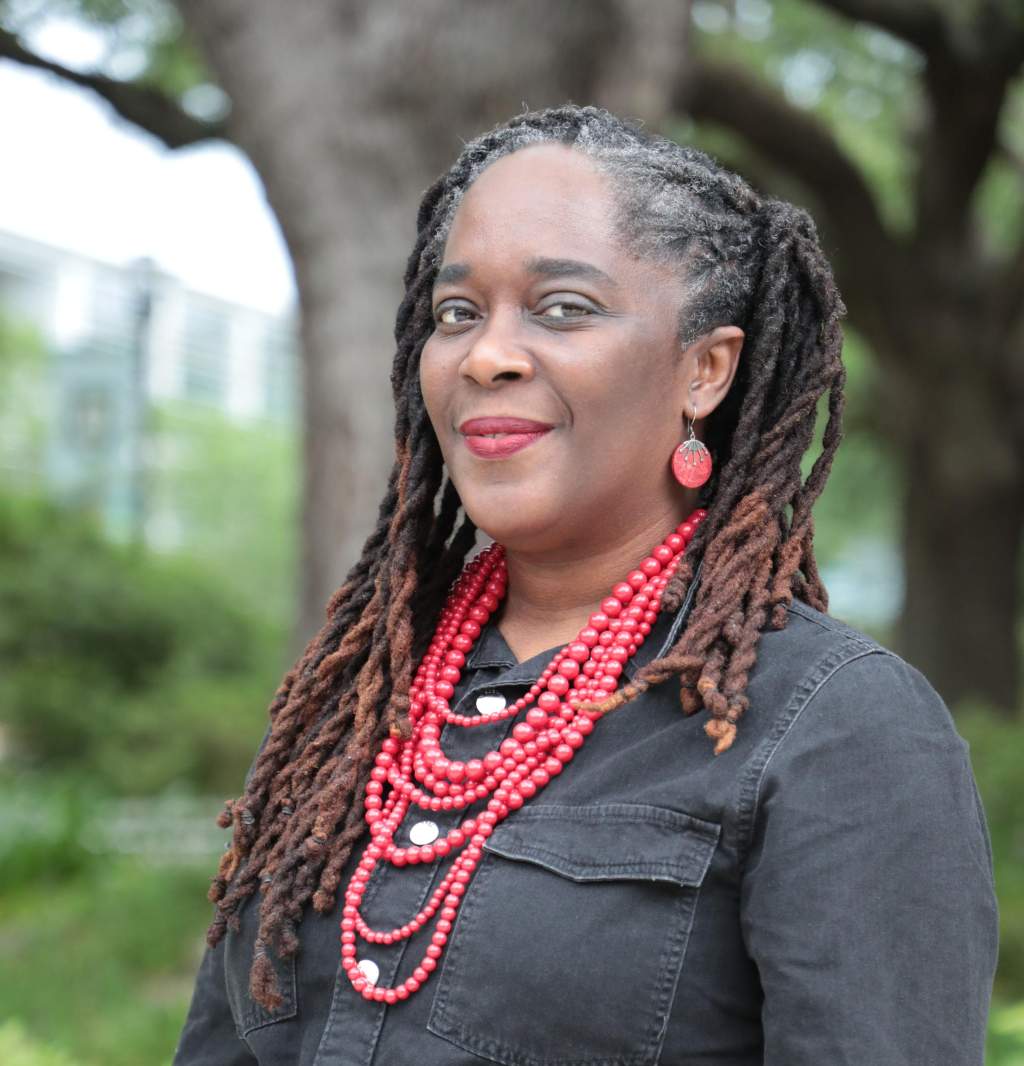
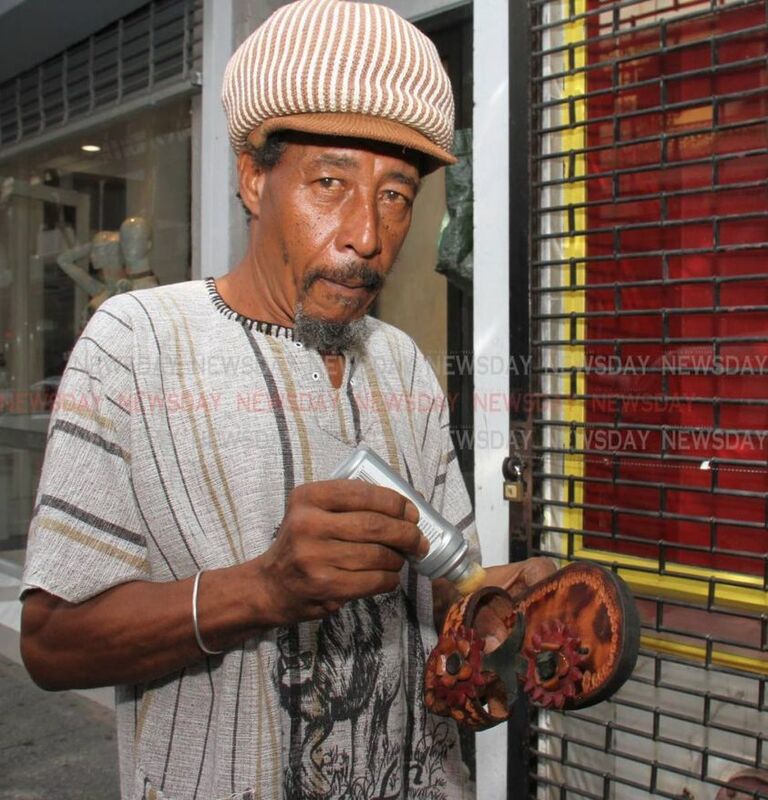

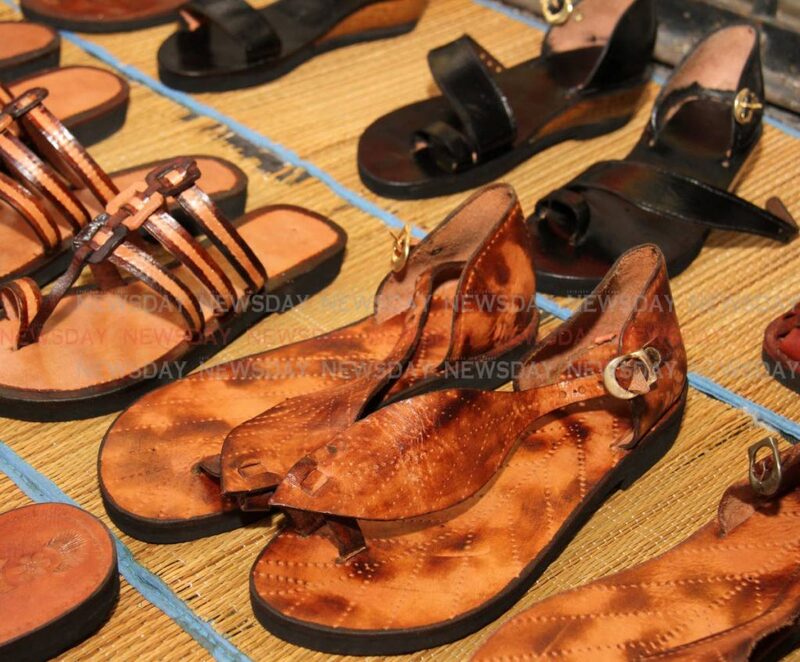
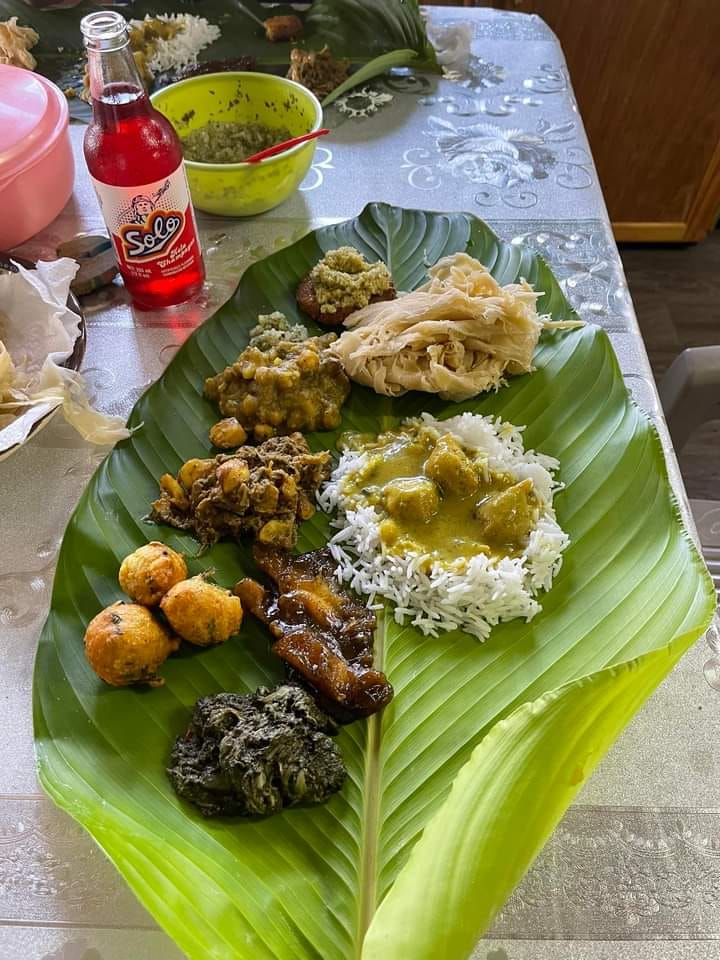
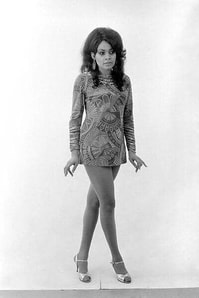

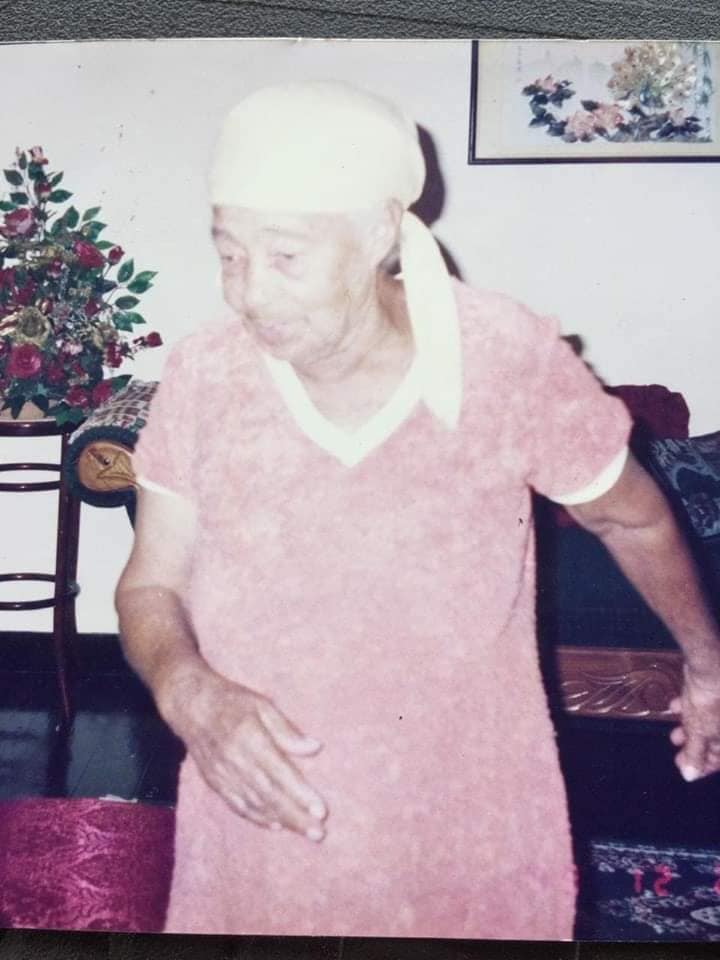
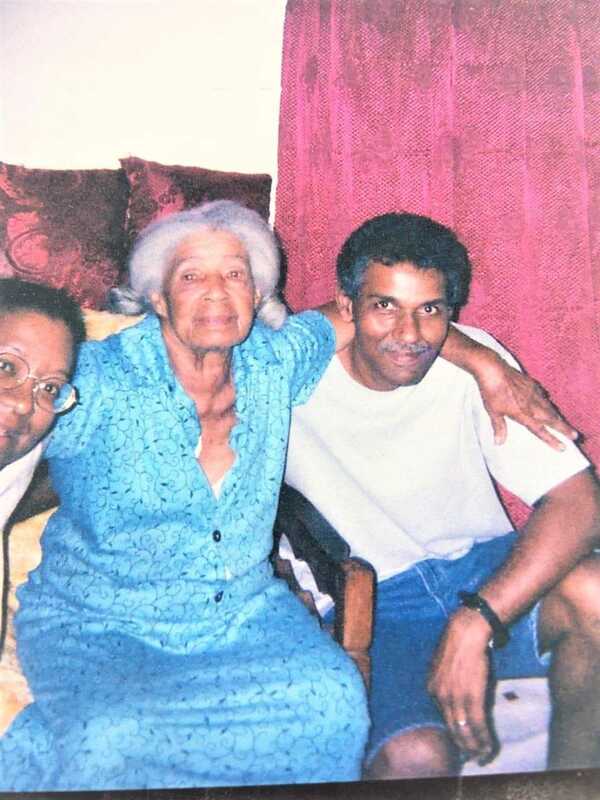
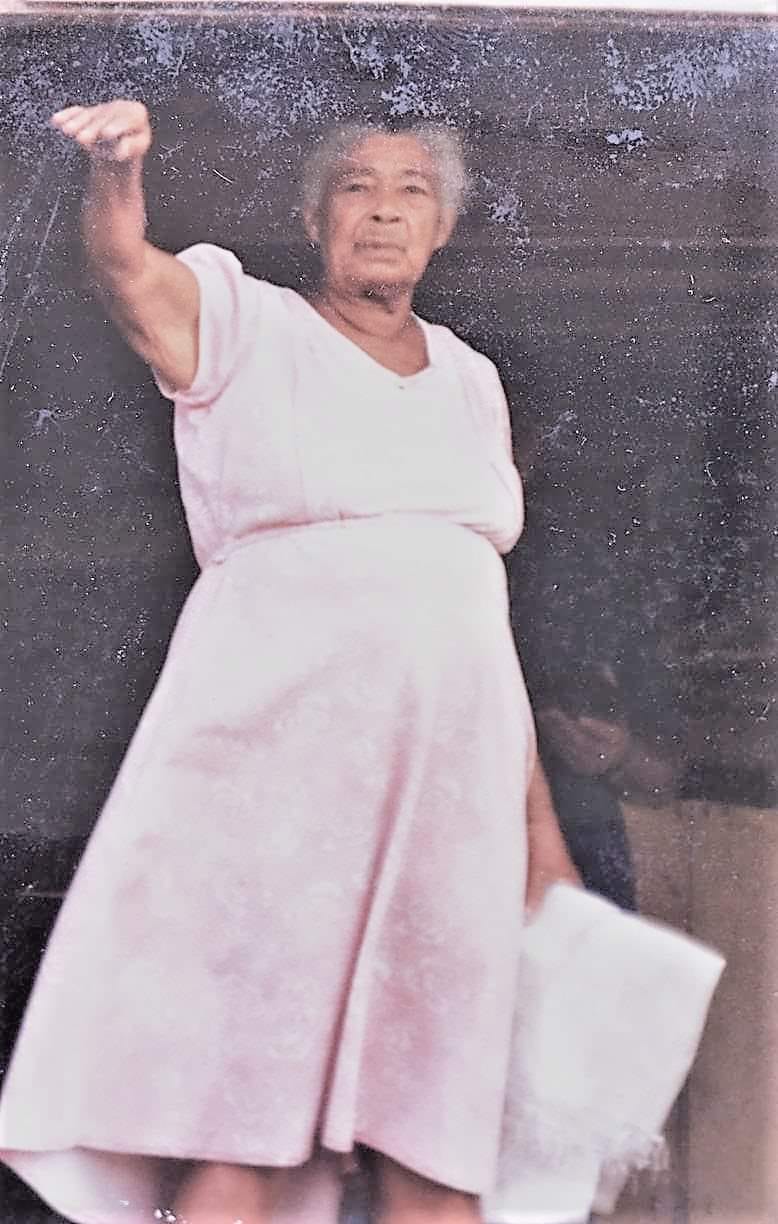

 RSS Feed
RSS Feed